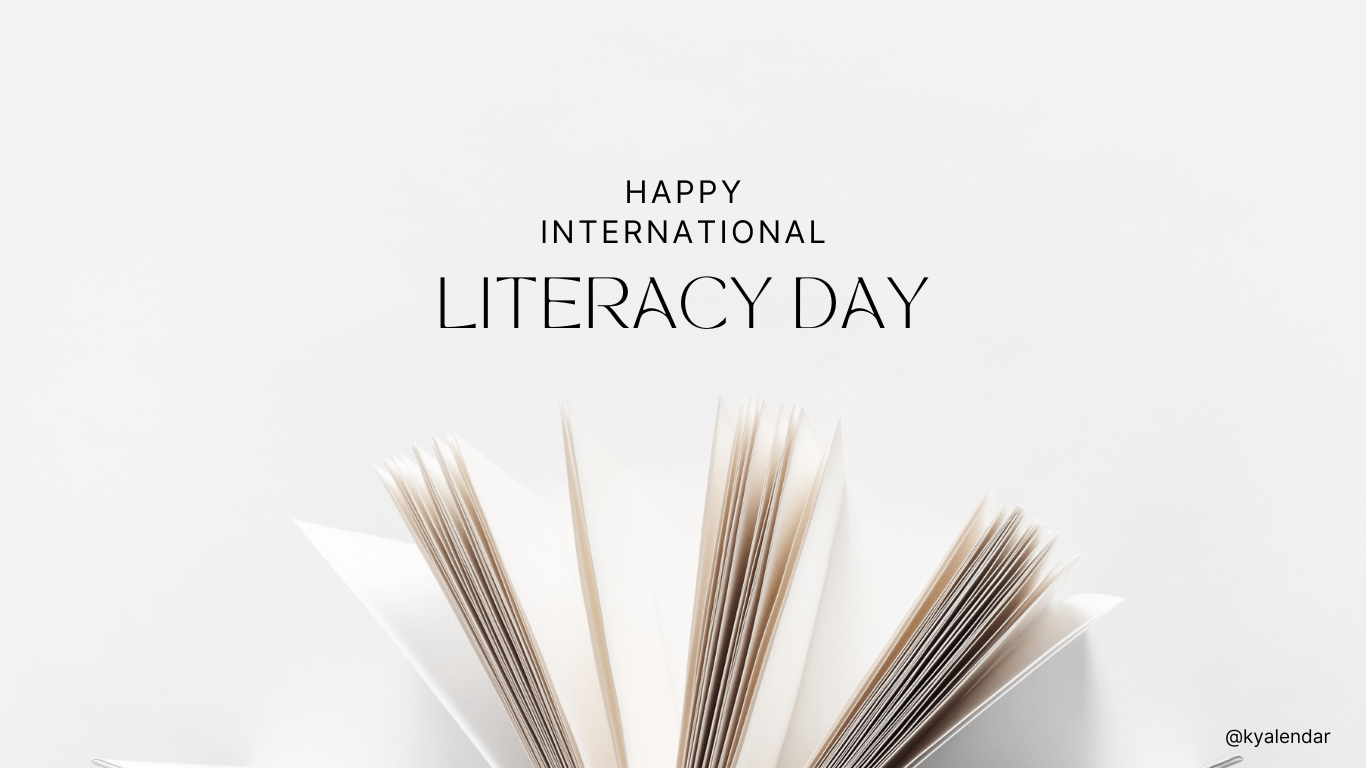
- This event has passed.
International Literacy Day
September 8

International Literacy Day, observed annually on the 8th of September, is a day dedicated to raising awareness about the importance of literacy and the critical role it plays in our lives. Literacy is not just about the ability to read and write; it is a fundamental human right that empowers individuals and communities, enabling them to participate fully in society and the global economy.
The Significance of Literacy
Literacy is the cornerstone of education and lifelong learning. It is the key that unlocks the door to knowledge, personal growth, and opportunities. A literate person has the ability to understand, interpret, create, and communicate using printed and written materials. These skills are essential for navigating the complexities of the modern world, from understanding health information to participating in democratic processes.
In today’s information-driven society, literacy extends beyond traditional reading and writing. Digital literacy, for example, has become increasingly important as more of our communication, work, and education take place online. The ability to critically assess information, engage with digital content, and use technology effectively are now integral components of being literate.
The Global Literacy Challenge
Despite significant progress over the years, literacy remains a challenge in many parts of the world. According to global statistics, millions of people still lack basic reading and writing skills, with the majority living in developing countries. Women and girls, in particular, are disproportionately affected, often due to cultural, social, and economic barriers that limit their access to education.
International Literacy Day shines a spotlight on these challenges, reminding us that literacy is not just a personal achievement but a collective responsibility. When individuals are literate, they are better equipped to improve their own lives and contribute to the development of their communities. Conversely, a lack of literacy can perpetuate cycles of poverty, inequality, and marginalisation.
The History of International Literacy Day
International Literacy Day was established by UNESCO (the United Nations Educational, Scientific and Cultural Organization) in 1966. It was created to remind the international community of the importance of literacy for individuals, communities, and societies, and the need for intensified efforts towards more literate societies. Since then, it has been celebrated globally with various events, campaigns, and activities aimed at promoting literacy and raising awareness about its significance.
Each year, International Literacy Day has a specific theme that focuses on different aspects of literacy, such as literacy in a digital world, literacy and sustainable development, or literacy and education in crises. These themes help to highlight the evolving nature of literacy and the need to address new challenges as they arise.
Celebrating International Literacy Day
International Literacy Day is celebrated in various ways around the world. Governments, non-governmental organisations, educational institutions, and communities come together to organise events that promote literacy and raise awareness about its importance. These events can include literacy workshops, book drives, reading sessions, educational seminars, and community outreach programmes.
For individuals, International Literacy Day is an opportunity to reflect on the value of literacy in their own lives and to consider how they can contribute to the promotion of literacy in their communities. Volunteering with local literacy programmes, donating books, or supporting educational initiatives are just a few ways to get involved.
In schools, teachers may use International Literacy Day as a chance to inspire their students to appreciate the power of reading and writing. Activities such as storytelling sessions, writing competitions, and book discussions can help to foster a love of literacy among young people, setting them on a path of lifelong learning.
The Impact of Literacy on Society
The impact of literacy on society cannot be overstated. Literate individuals are more likely to participate in the workforce, earn higher incomes, and contribute to economic growth. Literacy also plays a crucial role in promoting health and well-being, as it enables people to access and understand health information, make informed decisions, and lead healthier lives.
Furthermore, literacy is a powerful tool for social change. It empowers individuals to advocate for their rights, challenge injustice, and participate in civic life. In this way, literacy is not just about personal development but also about building more inclusive, equitable, and democratic societies.
Conclusion
International Literacy Day serves as a powerful reminder of the importance of literacy in our lives and the ongoing efforts needed to ensure that everyone has access to this fundamental skill. It is a day to celebrate the progress that has been made, but also to recognise the work that still needs to be done to achieve universal literacy.
By raising awareness and taking action, we can help to create a world where literacy is a reality for all, empowering individuals and communities to thrive. On this day, let us reaffirm our commitment to promoting literacy and education for all, and take steps towards building a more literate and equitable world.
Details
- Date:
- September 8